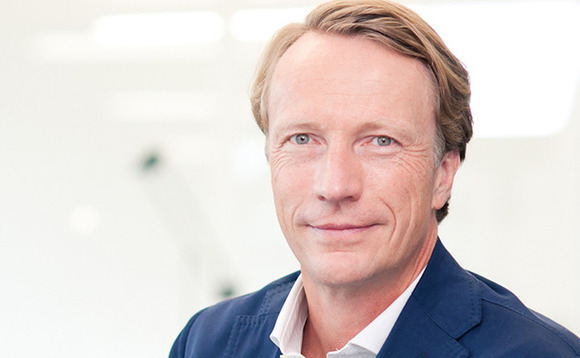
Hendrik Brandis of Earlybird on strength of Germany's startups

Ahead of the unquote" DACH Private Equity Forum taking place on 20 October in Munich, Hendrik Brandis of Earlybird speaks to Katharina Semke about Berlin’s burgeoning startup scene and the hottest sectors for VC investing
Katharina Semke: Berlin has shown itself as a leading hub for startups, but what have been the main drivers for this?
Hendrik Brandis: Berlin is cool and the cost of living is low. This makes it very attractive for the younger generation. In addition, the city has a relatively high rate of unemployed people and its two universities produce a large number of well-educated academics. Those factors encouraged the forming of a critical mass, which has accelerated itself over time.
KS: Are there any other regions in Germany that are generating good startups?
HB: The second start up hub is Munich. While Berlin has a focus on consumer internet, in Munich B2B and enterprise internet is stronger. This is due to the city's high density of firms on the Deutsche Börse DAX index and technology companies, which are the target customers for the B2B sector.
Of course, there are interesting projects coming from Cologne, Hamburg or Aachen, but those cities produce by far lower numbers than Berlin and Munich.
KS: Are there any sectors where German entrepreneurs are especially strong?
HB: Startups with a strong focus on engineering are generally a German strength. So the current upcoming opportunities in the internet-of-things space represent a clear area of strength.
Furthermore, execution is something Germans tend to be good at. So everything where excellence in execution is especially important can benefit from that, for example e-commerce companies like Zalando and Wunderlist.
KS: Valuations of assets particularly for tech companies are rising rapidly. How do you ensure that you are paying the right price?
HB: The problem with startups is that you only find out during the exit whether the entry valuation was correct. Of course, investors try to pay as little as possible. We try to find out how much profit we can realistically make at exit, after improvements and additional investments. We judge which multiple we need to reach in order to have a fair reflection of the risk that we have taken. That is how we reach our valuation. However, a changing market situation can alter the exit value drastically.
The only thing you can do is to be disciplined, to set yourself a price limit at a valuation you consider as fair at exit and not buy if you consider the valuation as too high. This can be hard when you come across an attractive deal, but in the end you never lose money in a deal that you did not do.
KS: Do you think European venture capital can ever be as prolific as it is in the US?
HB: Generally speaking, there is no reason why this should not be possible, but I do not see it happening any time soon. In the US, you have a list of helpful framework conditions that do not exist in Europe. You also have regulations in Europe that complicate the growth of startups. For example, Europe does not have enough venture capital and fund investors available. In the US, the money comes partly from foundations, endowments and pension funds. This category of fund investors hardly exists in Europe.
The second point is the smaller pool of aspirational and experienced entrepreneurs and tech managers. In the US anything smaller than the ambition to conquer the world is rather exceptional, whereas in Europe it is rather the other way round.
There are a few points that speak against the idea that Europe can close up to the US in terms of venture capital any time soon, but over time these can be addressed so that I do not see why it could not happen in the long term.
KS: After the dotcom crash, there has been reduced LP investment into venture. Are LPs now keen to invest in this space?
HB: Over the last three years, LPs have started spending more again. The dotcom crash has marked a dramatic decline and that has not been forgotten. However, it has been a few years since the crash and there are many new people in charge now who might not have bad experiences.
KS: If you could have one wish for European venture capital, what would it be?
HB: My wish is that Europe starts to recognise investments in technology and venture capital much more as national investments into the future. It would be great if the Europeans would establish sovereign wealth funds that also invest in venture capital. This makes sense in terms of keeping and improving the technological basis in Europe.
Apart from that, the German federal government is expecting a budget surplus. How good would it be for our country and future if we take a chunk of this money and establish a national fund that invests in technology and young businesses to build the backbone of our future economical base?
To hear more from Hendrik Brandis, and other leading figures in the DACH private equity market, book your place for the unquote" DACH Private Equity Forum, taking place on 20 October in Munich. Click here for more details.
Latest News
Stonehage Fleming raises USD 130m for largest fund to date, eyes 2024 programme
Sponsor acquired the public software group in July 2017 via the same-year vintage Partners Group Global Value 2017
Stonehage Fleming raises USD 130m for largest fund to date, eyes 2024 programme
Czech Republic-headquartered family office is targeting DACH and CEE region deals
Stonehage Fleming raises USD 130m for largest fund to date, eyes 2024 programme
Ex-Rocket Internet leader Bettina Curtze joins Swiss VC firm as partner and CFO
Stonehage Fleming raises USD 130m for largest fund to date, eyes 2024 programme
Estonia-registered VC could bolster LP base with fresh capital from funds-of-funds or pension funds









